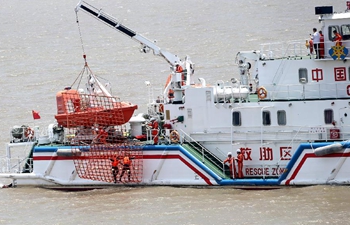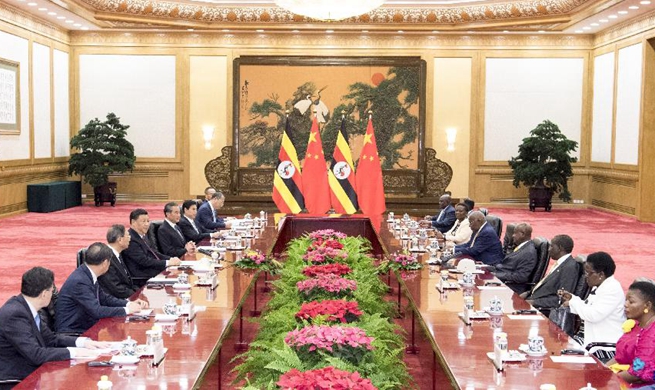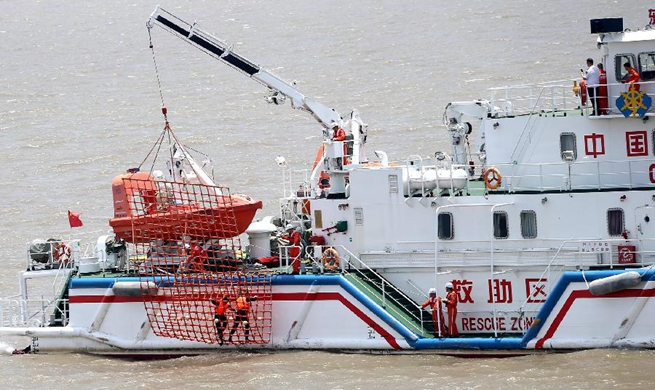GUANGZHOU, June 25 (Xinhua) -- After receiving a parcel, courier Wang Xiangjun would spend less than one minute verifying the customers' ID cards, checking the things inside, and uploading the information to a system connected to local police authorities.
Wang's store, which has been open for three years, is located in an area inhabited by a large number of migrant workers in Baiyun District of Guangzhou, capital of south China's Guangdong Province. On its walls are anti-drug slogans and pictures as well as signs telling people to register real name information and open the parcel for check-ups.
The routine process is repeated every day in thousands of logistics outlets in the district. Like Wang, all the local 38,000 couriers are anti-drug volunteers.
Over the years, the rapid development of the courier industry has brought not only economic benefits but security risks, with transporting of contraband goods and drugs once being busted frequently in Baiyun, one of the largest logistics centers in China.
At the end of 2015, the district was listed by the China National Narcotics Control Commission as one of the areas with prominent drug trafficking issue. Local police then devised a system named Yundi'an (literally Cloud Courier Security) in 2016 to strengthen the supervision of the courier industry.
The legions of couriers handle the parcels with the system's mobile phone app, facilitating the supervision of the whole process of the express delivery business.
"The strict management can reduce the outflow of drugs and other illegal goods, and also safeguard our own security," said Wang. "Customers have also gradually become accustomed to the real-name system and opening-up of parcels for inspections."
Every week, anti-drug volunteers like Wang would spend one hour on anti-drug training and security education organized by local police.
In the past, Wang could not identify drugs. Now he can accurately tell the features of common drugs such as methamphetamine and ecstasy. He would notify the police whenever he finds any suspected drugs inside the parcels.
Police authorities in Baiyun have also set up a special brigade to patrol local logistic stores and to step up supervision of high-risk groups.
In recent years, the Internet and the courier industry have become a new channel for drug trafficking.
According to a report released by the China National Narcotics Control Commission last week, some suspects sell and buy drugs and chemicals used for illicit drug manufacturing via the Internet and use courier services to transport drugs without offering their real names.
Authorities in Baiyun have effectively curbed local drug trafficking after promoting the Yundi'an system among a large number of couriers.
Over the past three years, the system has helped police uncover over 600 drug users and traffickers, bust 34 drug trafficking cases and seize 1.33 tonnes of drugs.
Over the period, local courier business had increased by 165 percent to 3.2 billion parcels in 2018, with drug-related cases in the sector falling by 93 percent.
A spate of measures, including the Yundi'an system, a smart door system and face recognition technology, have helped tackle the once prominent drug trafficking issue and improved social security, said Zhao Yanchun, deputy director of the Baiyun district public security bureau.
A total of 159 teams from home and abroad have come to the Baiyun district to learn from the area's experience. "We have come up with an anti-drug solution that can be copied and promoted in the logistics sector," said Zhao.

















